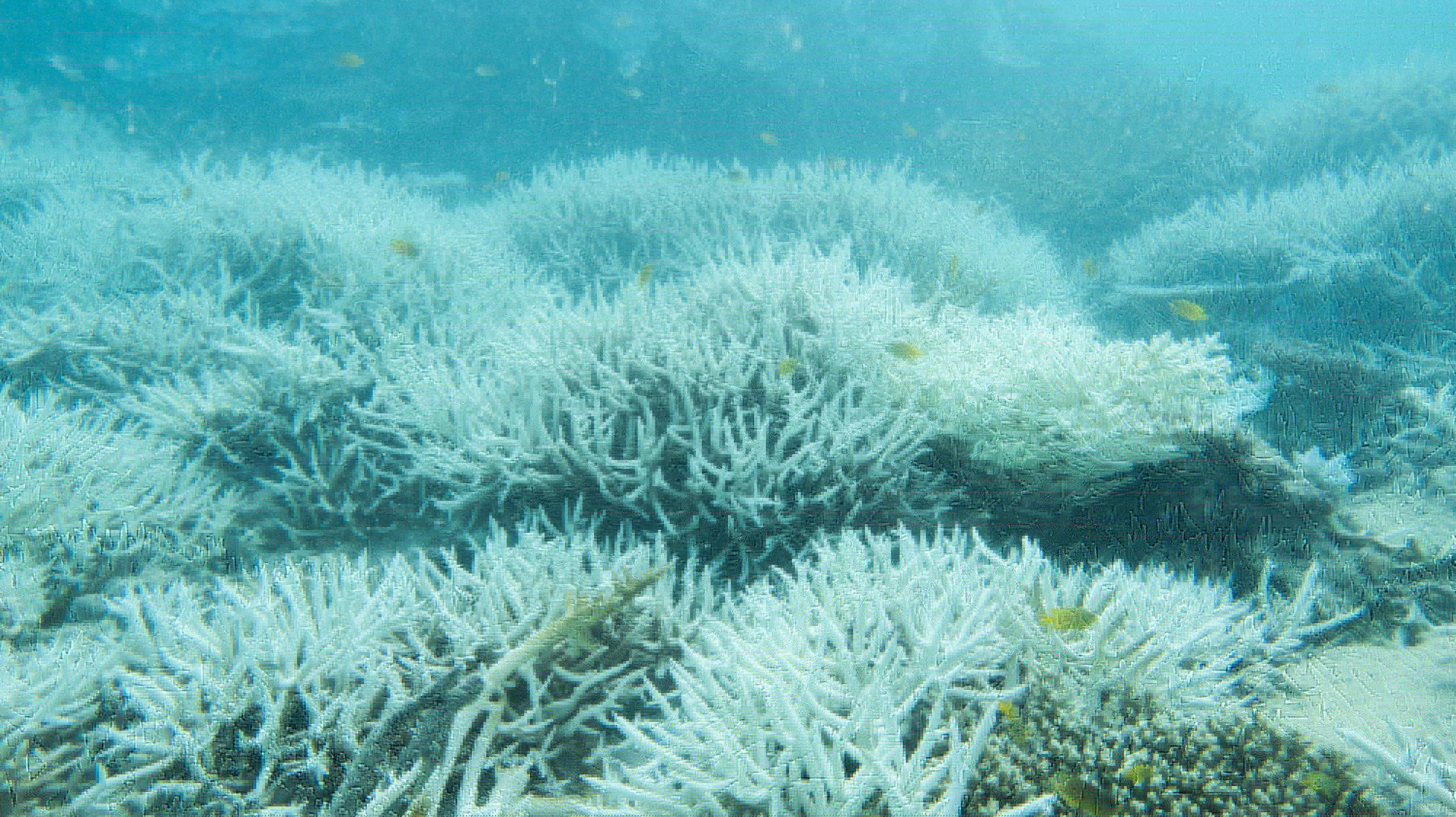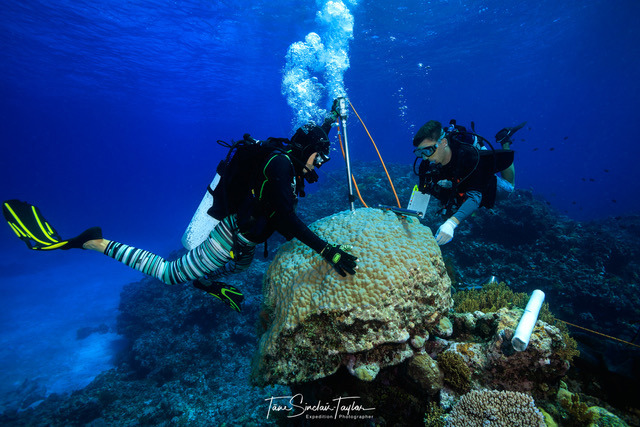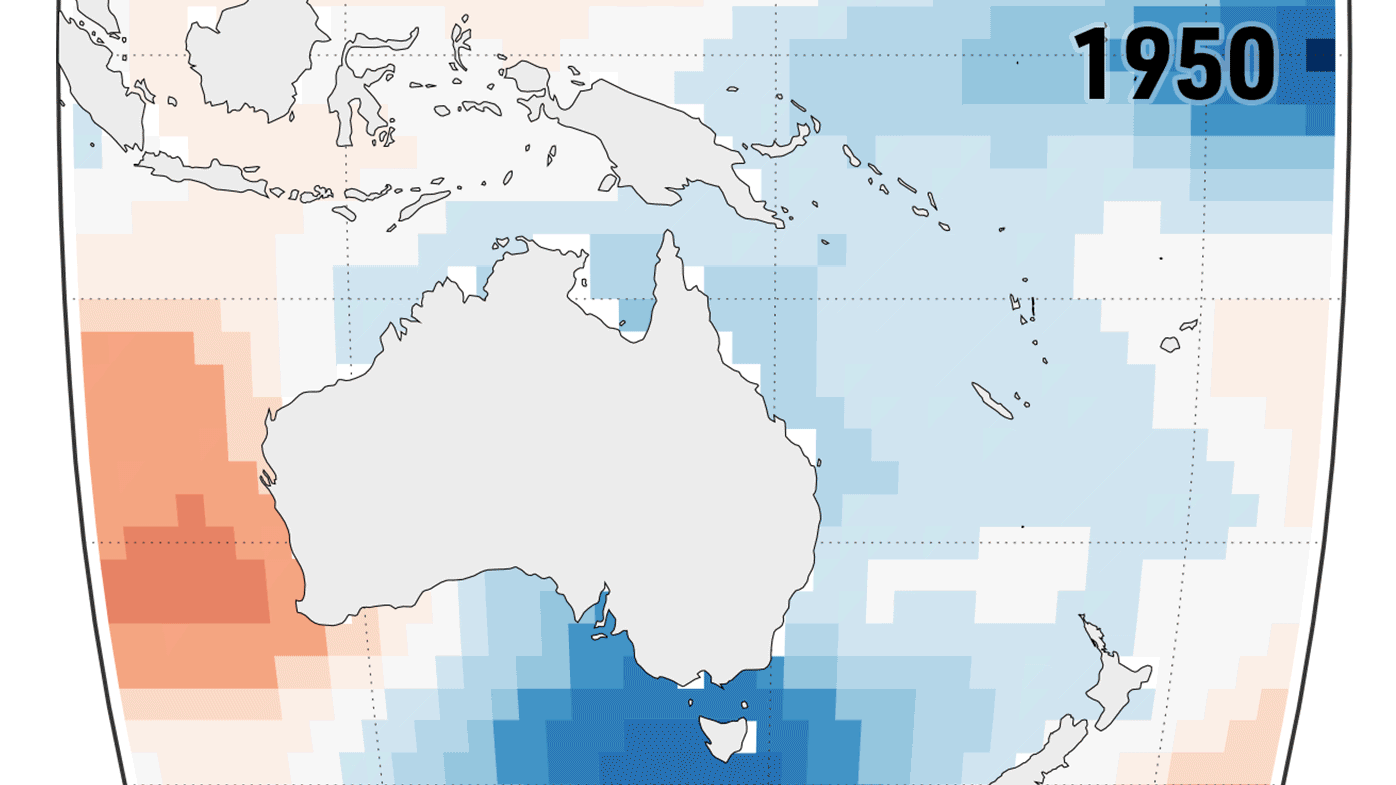The Great Barrier Reef is facing almost "inevitable" mass destruction as the temperature of the surrounding ocean hits a record 400-year high, an alarming new study by Australian researchers has found.
The sea surface temperatures in the Coral Sea between January and March in 2017 and 2020 were the warmest in the last four centuries, the climate scientists' analysis determined.
That is, until this year.
READ MORE: World's largest iceberg caught spinning in mysterious ocean trap

The team of Australian researchers studied the chemicals of the corals in the Coral Sea to reconstruct ocean temperatures between 1618 and 1995.
By combining this with instrument measurements from 1900 onwards, they were able to rank four centuries of ocean summer sea surface temperatures.
"When I plotted the 2024 data point, I had to triple check my calculations," said lead researcher and University of Melbourne lecturer, Dr Bejamin Henley.
"It was off the charts - far above the previous record high in 2017. I could almost not believe it."

The alarming findings come just a week after UNESCO's World Heritage Committee decided against listing the World Heritage-listed site as "in danger", following strong lobbying by the Australian government.
However, the researchers behind this report published today in Nature dispute this.
"There is no 'if, but or maybe'," said co-author and University of Wollongong's Professor Helen McGregor.
"The Great Barrier Reef is facing catastrophe if anthropogenic climate change is not immediately addressed."
Without intervention, the Reef will likely face near-annual coral bleaching events, placing the entire marine ecosystem which depends on it in jeopardy.
READ MORE: How close are we to the most catastrophic effects of climate change?

Coral bleaching occurs when stress causes the corals to expel the algae that live in their tissue.
That algae is what gives the reef its vibrant colours and without them, the coral's white skeleton is exposed.
The Great Barrier Reef has experienced five mass coral bleaching events since 2016 - in 2016, 2017, 2020, 2022 and now again in 2024.

Henley said their team's climate model analysis confirmed that human influence on the climate system is responsible for the Coral Sea's rapid warming in recent decades.
Following natural trends, the ocean should only have warmed by 0.01 degrees Celsius per decade.
Instead, they've warmed by more than one degree Celsius.
Even if the world does succeed in limiting global warming to the Paris Agreement's target of 1.5 degrees Celcius, it's estimated that 70 to 90 per cent of corals on the Great Barrier Reef would still be lost.
The research also has profound implications for other marine ecosystems globally with similar sensitivities to rising sea temperatures, says University of Queensland's Professor Ove Hoegh-Guldberg.
"Almost every part of the ocean, from kelp forests to the deep sea, is changing in response to thermal stress and mass mortalities," he said.
